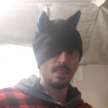Beyond the End of the World, Lokians 1
Chapter 1

Welcome to Beyond the End of the World. My name is Aaron Dennis, and I will be presenting this published novel to you one chapter at time. The entire novel is free for download via Barnes and Noble online.
This is an action-packed, scifi military novel. Some language may not be suitable for minors. The first post will contain the prologue and the first chapter. Enjoy.
Prologue
Man yearns to explore, learn, perceive, and break beyond the bonds of limitation. Great, philosophic minds pondered such implications, giving rise to questions with no answer. Who are we? Why are we here? What is the meaning of life? Are we alone in the universe? Can we reach for the stars?
A decade into the Twenty First Century, a space exploration program known as NASA retired their shuttle, stating their space station, the ISS, was sufficient to advance man’s knowledge of space; no more flights to the moon were needed, probes were built to reach other planets, yet a question was raised; was NASA truly marooning their scientists in Earth’s orbit? Was there, really, no shuttle in reserve for emergency protocol?
What no one knew was that a new vessel had already been designed and produced. A drone shuttle carried equipment to the ISS, building materials, and there, the engineers constructed new probes. Launching them from beyond Earth’s gravitational pull allowed the tiny machines to explore without immense fuel requirements. New studies had commenced.
Survey satellites were then built and released to specified coordinates. Their role was to relay any information gathered by probes back to Earth. It took little time to obtain great findings. Less than a year into the program, the probes detected abundant deposits of precious minerals in asteroids both inside and outside the solar system. The next step required mining probes to retrieve the deposits. A new age began when humans no longer needlessly harvested their own planet’s resources.
A few decades down the road, survey probes revealed more than just resources; asteroids, moons, and planets were deemed acceptable for colonization with little cost or effort, however, there was always the obstacle of time. A journey from Earth to the closest sites meant decades of travel. Great minds set their combined efforts on the task, and a solution was proposed; send colonies to midway stations on small asteroids.
It was no surprise to NASA that very few volunteered. Many citizens of Earth were comfortable and happy in their lives. A move to a colonial life in space was practically permanent, and traveling for years only to live in the desolation of space was frightening. Then, the military stepped in, looking to soldiers for support. Project Safe Haven was announced.
In the year 2111, almost fifty years after the first successful colony, Admiral John Lay, the overseer of Safe Haven, commissioned Captain Riley O’Hara to lead a team of scientists and engineers aboard the Phoenix, a vessel orbiting a planet called Eon. The new ship and the new crew were set to break new ground; The Horizon Project was employed to begin colonization of the first planet outside the Sol system. O’Hara was beyond psyched.
Chapter One
O’Hara sat in crew quarters, little more than rows of beds, tables, chairs, and lockers utilized by eighteen, military occupants, which included O’Hara. There were also ten scientists aboard the Phoenix—a mixture of geologists, engineers, climatologists, and biologists—and additional ship hands contracted by the Navy. Of the soldiers, O’Hara found the ship’s pilot, Sara Day, the more pleasant for conversation.
“Excited? This is our big break, Captain,” Day said, beaming.
She was short and fair. Her light skin blended perfectly with her flowing, blonde hair, and glimmering, green eyes. O’Hara smiled back, looking her over; she was a young, pretty Lieutenant at twenty one years of age.
“Bursting at the seams, Day. I still find it hard to believe Admiral Lay put me in charge instead of Rear Admiral Shaw,” the captain replied as he furrowed his brow.
He was rather tall, and of a darker complexion, older, twenty four, and though he lacked real, world experience, his intelligence and determination shone through almond colored eyes.
“I heard he’s assisting Lay with the next step,” she remarked.
“Colonizing a planet…we’re really doing something here.”
“Yeah, I can’t believe they think were ready to do this,” Day sighed.
“First thing’s first, we need to determine the cause of those magnetic disturbances.”
“Swain’s working on it?”
“Yeah. Logically, it’s some sort of magnetized, metal deposit, but there’s always the risk of radiation. There’s just as much we don’t know about Eon as we do know….”
A voice came over the Phoenix’s intercom. The Automated Monitoring System, or AMS as it was commonly known, stated in a robotic voice that entry into Eon’s atmosphere was taking place in two hours.
“Better hit the chair, Miss Day,” O’Hara smiled.
They stood. She saluted, he returned it then she ran to the bridge. It was not uncommon for a ship to have such a young pilot. All colonial children were enrolled in military schools, receiving the best of education. Once they excelled in a certain area, they were trained specifically for that field. Day was no exception. She also had the added comfort of the AMS assisting with small calibrations. At the bridge, she sat in the helmsman’s chair.
The Phoenix’s bridge was a cold, steel structure. The only decoration in the room was the burgundy, carpeted floor. From the suede chair, Day checked the screens mounted in the console before her. She looked at the large monitor displaying their surroundings.
A tri-sectional screen calibrated to three cameras revealed a 180 degree perspective of the ship’s environment. A fourth camera revealed the vessel’s six, but the bridge officers marveled at the beauty of the purple and green sphere on display. Day smiled to herself before brushing a few strands of blonde hair from her face as she double checked the landing coordinates. Everything was in order, so she took manual control.
Maneuvering the Phoenix under atmospheric pressure was simple, especially since a location had already been programmed into the AMS. It was set to land about three miles away from a dig site. Any closer and the ship ran the risk of damage by magnetic interference, the same interference Swain was studying. While the Phoenix had its own anti-magnetic, field generator, O’Hara preferred playing it safe, ordering a three mile trip from the site.
He was anxious to set foot on the surface and lead the scientists to the dig. It wasn’t simply O’Hara’s first, serious mission, it was the first time his feet were to grace genuine soil, and that was something he wanted to enjoy to its fullest. He and the others were suiting up in crew quarters as Lieutenant Commander Albert Swain walked by. He was their premier, tech expert.
“Swain,” O’Hara said, removing his blue and gray Navy uniform. He folded it neatly before placing it on his footlocker.
“I’m pumped, baby,” Swain grinned from ear-to-ear.
Replacing their fabric uniforms with tactical armor, Swain, a tall, black man with large arms and hands like a bear, struggled to buckle the straps in place, pulling laughter from his friends. Fortunately for them, he was not only of sharp mind, but of an easy going humor, and his participation was of key importance.
“All that puddin’s’ gone to your waist, pops,” one of the men joked.
“Stow it, Marty,” O’Hara chuckled. “You only wear half a suit as it is.”
A resounding Ohhh was howled by the others. Swain, who was a little older than the rest of the crew stated that with age came wisdom. Before his mission aboard the Phoenix, he had made many of the modifications on current, exploration technology. It was his expertise that captured aerial photographs of the dig site. At closest range he snapped pics two miles above, revealing a perfectly circular area with no plant growth. It was believed some form of radiation was probably leaking out, stunting the growth of plant life in the vicinity.
O’Hara nodded to his crew as he passed them on the way to the latrine. He entered with his tactical armor in tow and promptly sat on the john. The bright, white light made the floor tiles radiate a blinding reflection. He shut his eyes, trying to relax.
“C’mon now, we both know as soon as I put this suit on, you’re going to want to go. Let’s just do this.”
He often talked to himself, especially in such a situation, griping about intestinal distress, which surfaced every time something major was at stake, but that was just the way it was. He chuckled. Maybe I’ll just start putting on my chest plate, he thought, bet that’ll get me going. A knock on the stall door broke his concentration.
“Ten minutes to landing, Cap,” Martinez said, his voice echoing in the steel latrine.
“Acknowledged,” O’Hara replied as he finished his business. “Now, number two is no longer my number one priority.”
“Glad you told me,” Martinez snipped.
Ensign Martinez was an ordnance specialist and possibly the craziest member of O’Hara’s crew. He was a tiny Puerto Rican who knew everything there was to know about explosives and demolition. Word was, he once rigged himself with some concussive, blast caps in order to blow his way through a training exercise. Naturally, he wound up in sickbay with a mild concussion. Martinez was barreling through the ship’s steel corridors then, rounding up everyone needed for the mission. Shortly thereafter, they all met in conference room B. Oddly enough, there was no conference room A, a possible oversight about which the crew enjoyed asking the AMS.
The conversation usually proceeded as follows: AMS, we need to meet in conference room A, please confirm the room is available for use.
Searching, locating, error; room not found. Please, restate query.
Check conference room A for availability.
Searching…no scheduled usage for said location.
Good, give location please.
Searching, locating, conference room A is located 730 miles to the northeast.
That would place me outside the Phoenix. How can the room be outside the ship?
Error, checking logs, error…attempting to communicate with servos. No response.
Though the foolishness had simply been a device to break the monotony, Swain proposed reprogramming the AMS to reroute all requests for room A to room B, but they voted against him, so, in room B, they eagerly awaited their captain for mission objectives. O’Hara entered moments later, wearing his full, battle dress, gray and black armor with strategic plating to protect the vitals. All his men were lined up at attention, also in full gear. Battle dress was composed of a thick, airtight material. The suits not only provided strategic, defensive plating, they also provided an automated, life support system calibrated to their specific needs. O’Hara nodded to his crew and the scientists as he made his way to the lectern. The scientists, who also grew up on the same, militarized colonies, weren’t Navy men, something their civies reflected.
Room B was a small room with a steel desk in the center bolted to the floor. A lectern with control panels stood opposite the door at the other end of the room, also bolted to the steel floor. There were many panels in the walls and ceilings, which either displayed images on a screen or projected some three dimensional schematics. Some panels were for sound or lighting.
“Roll call,” O’Hara announced, “Becker, DeReaux, Fitzpatrick, Imes, Martinez, Nandesrikahl, Swain, Zakowski.” They all replied, present, so he proceeded to call the civilians. “Chadwick, Levine, Mickelson, Nicholson, Royce.” They, too, replied, present. “Alright,” O’Hara chirped. “Let’s begin with the aerial photograph provided by Swain.” He pressed a button on the lectern, causing a screen to lower from the ceiling. It stopped halfway and he cursed under his breath. After gripping it and tugging while the others choked back laughter, he finally shook the piece of crap loose. He then dimmed the lights and pressed another button. The photograph displayed on the screen. “As you can see, we have a large circular area with no life signs. Our instruments haven’t detected any radiation, but we’ll try to see if we can pick up anything on the way there.
“Now, none of our equipment functions in this location, so we’ll have to do everything by hand. The first thing we’ll do is set up a mobile camp one mile from the dig site, which is far away enough from any possible exposure. Once the camp is set, DeReaux and Fitzpatrick will escort geologist Mickelson to the dig site where he’ll collect surface samples. The three of them will promptly return and begin studies. Yes, Nicholson,” he asked when the nerd fidgeted, uncontrollably.
Nicholson awkwardly lowered his hand to shoulder level, looking ruffled. “Uh, Sir, I’m not a geologist.”
O’Hara grumbled, “I said Mickelson, dude; that was Mickelson, DeReaux and Fitzpatrick. They’ll return and begin studies on the soil sample. With any luck, we’ll conclude zero danger of radiation. Should this not be the case then we employ Chadwick, Swain, and Nandesrikahl for a thorough cleaning.
“I guess we have an ionized compound or something Chadwick threw together. It’s supposed to soak up any surface radiation. If, for whatever reason, it isn’t necessary, we’ll move straight to the second step—clearing away as much surface debris as we can to obtain further soil samples for composition studies. That’ll probably round out the rest of the day, so we may as well move out.”
****
Day had taken the helm, guiding the ship towards Eon. She slowly penetrated the atmosphere as Roberts, a young, black woman, gave out readings regarding angle of descent and deceleration speeds.
“Estimated time of landing, three minutes,” Roberts stated.
“Acknowledged. Adjusting for wind speeds. Decelerating,” Day replied.
****
Beyond the atmosphere’s periphery, the AMS recalibrated for excessive wind speeds. By the end of the third minute, the Phoenix extended eight, hydraulic stands to evenly distribute its weight over brownish soil. The ship’s hull was reminiscent of a red and silver bird. Its paint job made it look like a phoenix, a scaly phoenix, due to innumerable, tiny plates fashioned to allow for structural changes resulting from various, atmospheric pressures; it was a special vessel designed specifically to land on other planets, bodies exhibiting radically dissimilar environments.
****
“We’re here,” Roberts cheered.
The surrounding crewmembers applauded the successful first landing ever, a feat no less amazing than the first moon landing. At the other end of the ship, O’Hara and company exited conference room B, entered the service elevator, went down to the loading zone and waited for the all clear. While O’Hara was in charge of Phoenix Crew, Admiral Lay, who was stationed back on colony Alpha-6, managed O’Hara, and the Phoenix itself. From the colony, the admiral maintained command and gave all orders to the spec ops team.
The captain and crew traversed the spacious loading area. Heading for the bay door rather than the personnel egress, they clomped through the expanse, snatching up what little they required for erecting base camp. Then, as soldiers and scientists waited, they stood as a family for one tantalizing moment.
“We are go for mission, Admiral,” O’Hara spoke through the comm. link he wore on his left ear.
“Acknowledged. You may begin. This is your mission, O’Hara. Route any findings back to the colony when you have solid results. Out,” Admiral Lay disconnected.
The bay door opened, releasing hydraulic pressure with a hiss. An orange glow wormed into the loading zone, paled by artificial lighting. Holding their breaths, the crew stepped down the loading platform and onto Eon. For the first time in their lives, they took deep breaths of real air. The oxygen on Eon was a little more concentrated than that of Earth, but not pure like the oxygen pumped through the vents on ships and colonies. It was quasi-euphoric with a peculiar, almost living, scent. Nicholson sneezed.
“Alright, everyone take in the sights, but move quickly. We plan on arriving outside the dig site in an hour. Move out,” O’Hara ordered.
The ground was level, an easy terrain to traverse, but what made it odd was that their combat boots didn’t squeak on the natural ground; a peculiarity they found extravagant, and they carefully scrutinized each step for the first few minutes. Everyone there had been raised on the Alpha-6 colony. Since it was located on an asteroid in the Alpha belt, everything there was synthetic. The air, the ground, and the light were all artificial constructs. Any mission or training exercise that took place outside the bunkers or buildings required special, synthetic gravity equipment. Food was grown in dirt, but that dirt was precious and kept in pots in greenhouses. No one ever dared covering a floor with dirt and walking on it just to see how it felt. What they experienced that fateful day was different; soft ground gave way with every step.
Above their heads, the lit, purple expanse looked so far away. It was disorienting. They were all used to ceilings above their heads. Outdoor training exercises required space gear, and travel outside only revealed an ominous, black void, or the occasional star speckled void. Optimistically, they pressed onwards.
The next thing they noticed were sounds on Eon, different than the sounds of a vessel or colony. The buzzing was intermittent and organic unlike the cold, calculating hums of machinery. There were no voices, either, something rarely experienced. The air moved of its own accord, too. Finally Martinez broke the silence.
“Go-od damn,” he shouted, unable to contain his excitement. “I can’t believe how amazin’ this is, Cap. Ma-an, I never thought I see somethin’ like this.”
Everyone nodded in agreement. No vids or pics had prepared them for the realness of the situation. Twin orbs of faint, orange light burned dimly, semi-lighting their way, providing a twilight sensation too real for words.
“I’m afraid I’ll wake up back inside the ship,” Nandesrikahl said with a thick, British accent.
Though he was of Indian decent, his grandparents were from South Africa, so he had one of those accents, which belied a condescending facade. It was an illusion, however, one he often played to annoy his mates. In reality, he was always respectful of everyone.
“Let’s hope this is for real. I’m anxious to get started,” Mickelson remarked.
The two mile hike took about forty five minutes. None of them felt the passage of time. There were so many sights, sounds, and smells, they nearly went into sensory overload. Plants of all colors swayed from breezes, which caressed their faces. Some of the golden trees were immense in stature, and small organisms scurried up and down trunks. The ship relay communications unit finally dinged, and Swain checked their position.
“Crap! We’re already here, Captain,” Swain announced.
“Right,” O’Hara heaved. “We’ll begin setting up camp. DeReaux, Fitzpatrick, grab Mickelson. You guys got five to break then move out.”
The two snapped to attention following with a salute, which O’Hara returned. DeReaux was a refined man of French descent, tall, thin, and swarthy. He always seemed to be sniffing the air, maybe for fine wine, or maybe for fine women. His confidence, borderline, arrogance simply gave such impression.
As a handsome man with thick black hair, a great sense of humor, a lady magnet for all intents and purposes, he had good reason to be confident. His skills weren’t lacking, either—the military skills nor the lady killer skills. He was the finest sniper the academy had seen on Alpha-6 in over thirty years, rivaled only by Admiral Lay himself.
There was no expectation of battle during the mission, but O’Hara mandated a degree of security. Having the top sniper was a good idea. Having the top spotter accompany him was a better idea. Fitzpatrick was a manly, Irish woman. She and O’Hara were family friends. Their familial ties dated back to the initial colonization of asteroids. Helen Fitzpatrick was not a homely woman, but she was tough and butch. She sported a buzz cut, cussed more than Marty, and had been caught checking out a few ladies.
She was known to spot the slightest change over any horizon. If there was movement, or a visual incongruity, her eagle eyes picked it up. She was also fairly good with a rifle herself, though she preferred setting up for DeReaux rather than shooting, so they made a great team.
“Alright, Frenchie, lets grab the doc and move out,” she said.
“Swell,” he responded, nodding ever so slightly. “Mickelson, are you ready to proceed?”
The wreck of a man was more a rock than a man, really. He loved geology, and it took precedence over everything else, which included both his appearance and hygiene. His long, scraggly hair hung loosely on his head, and his thick mustache and goatee were always in need of a trim. He picked his pack off the ground, grimaced, and pushed his glasses back onto his face.
“I guess,” he replied with a smile, revealing yellow teeth.
While the remaining crew set up mobile camp, DeReaux, Fitzpatrick, and Mickelson hiked in cadence for about twenty minutes. Soon, they saw downed rovers in the distance. They knew they were close. Mickelson produced a Geiger counter. He turned it on, creating an obnoxious, clicking sound.
“What’s the readout, Mick,” Fitzpatrick asked.
“Oh, nothing out of the ordinary,” he replied as he squinted through his spectacles.
Suddenly, the counter ceased all noise. Fitzpatrick looked for an area to post up, but stopped to look at Mickelson when he hemmed and hawed. Pensively, he pace backwards, and the counter resumed clicking. “I think we should leave this here. I can grab some samples just outside the dig site and bring them back for rad check,” he said, pushing his glasses back onto his face.
“Won’t you get sick if it is radiated,” DeReaux asked as he crinkled his nose.
“I’ll just be in a sec. I’m sure it’ll be okay.”
DeReaux and Fitzpatrick glanced at each other.
About the Creator
Aaron Dennis
Creator of the Lokians SciFi series, The Adventures of Larson and Garrett, The Dragon of Time series, and more.






Comments
There are no comments for this story
Be the first to respond and start the conversation.